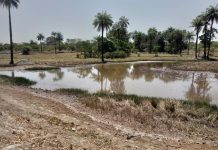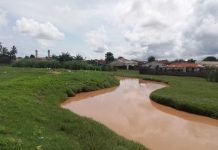By Kebba AF Touray
In a renewed effort to protect the country’s depleting forests and mitigate environmental degradation, Environment Minister Rohey John Manjang has outlined the government’s strategy to substitute charcoal burning with cleaner, more sustainable energy options.
Responding to a question by Foni Bondali lawmaker, Hon. Pa Dembo Sanneh, during the National Assembly session on Wednesday, June 25, 2025, Minister Manjang acknowledged that traditional charcoal use continues to pose a significant threat to Gambia’s forests, but assured lawmakers that measures are underway to reverse that trend.
“There are ongoing initiatives to replace charcoal with cleaner, forest-friendly alternatives aimed at reducing deforestation, while also improving household energy access and public health,” Minister Manjang said.
She noted that The Gambia has a national clean cooking energy action plan, developed in 2014 in collaboration with ECOWAS and the West Africa Clean Cooking Alliance (WACCA). The action plan, she explained, emphasises improved efficiency in the traditional charcoal value chain, the introduction of energy-efficient stoves, and the adoption of alternative cooking technologies to reduce dependence on forest-based fuel.
“These strategies aim to control excessive harvesting, reduce fuelwood consumption, and provide households with more sustainable and safer options,” she added.
The issue was raised as part of a broader concern over unsustainable resource extraction practices. Hon. Omar Jobe, speaking on behalf of Hon. Alhagie Mbowe of Upper Saloum, asked for a comprehensive update on the ministry’s restorative environmental efforts, particularly in response to destructive sand mining practices in coastal and inland regions.
“Sand mining continues to negatively impact our environment — from erosion to biodiversity loss and disrupted water systems,” Hon. Jobe said, calling on the Ministry to elaborate on both immediate and long-term environmental solutions.
In her response, Minister Manjang acknowledged the severity of the environmental consequences of sand mining and highlighted that the National Environment Agency (NEA), operating under her ministry, plays a key role in Environmental Impact Assessment (EIA) regulation, particularly ensuring that degraded mining sites are rehabilitated.
“Mining licenses are issued by the Geology Department under the 2005 Mining and Quarrying Act,” she said. “The law requires that mines be backfilled and restored after extraction. Our role, through NEA, is to monitor compliance and support restoration initiatives.”
She emphasised that the NEA has developed restorative protocols that include backfilling pits, replanting native vegetation, and enforcing drainage and erosion control mechanisms. Restoration, she said, is technically demanding and financially costly, but vital to the country’s environmental resilience.
“Under the NEMA Act of 1997 and EIA Regulations of 2014, every sand mining operation must undergo a thorough environmental impact assessment,” she told lawmakers. “These assessments mandate concrete mitigation plans, including soil preservation, erosion control, and rehabilitation obligations.”
In response to Hon. Jobe’s follow-up on how far NEA has progressed in backfilling and restoring affected sites, Minister Manjang admitted that challenges persist, particularly in funding and enforcement.
“Restoration is expensive, and oftentimes, license holders fail to fulfil their obligations,” she said. “However, we have begun visible efforts in Banjul, Kartong, and Gunjur, working closely with local communities and development partners to rehabilitate degraded areas.”
She added that the Ministry is also advancing long-term environmental resilience programs, focusing on sustainable resource management and climate adaptation.
The minister’s remarks come at a time when Gambia’s forest cover continues to shrink, while unregulated sand mining in coastal and inland areas increasingly threatens habitats and water tables. Analysts say that without decisive enforcement and broader public adoption of alternative fuels, Gambia’s ecological fragility may worsen in the face of climate change.
As Parliament continues its second ordinary session, environmental issues have increasingly taken centre stage, with lawmakers pressing for visible results from long-standing environmental pledges. The clean cooking strategy, first unveiled more than a decade ago, is among those under renewed scrutiny.
Despite these challenges, Minister Manjang insists that progress — though gradual — is underway.
“We are committed to moving away from destructive practices and toward sustainable alternatives that safeguard our forests, coastline, and the health of our people,” she said.




















